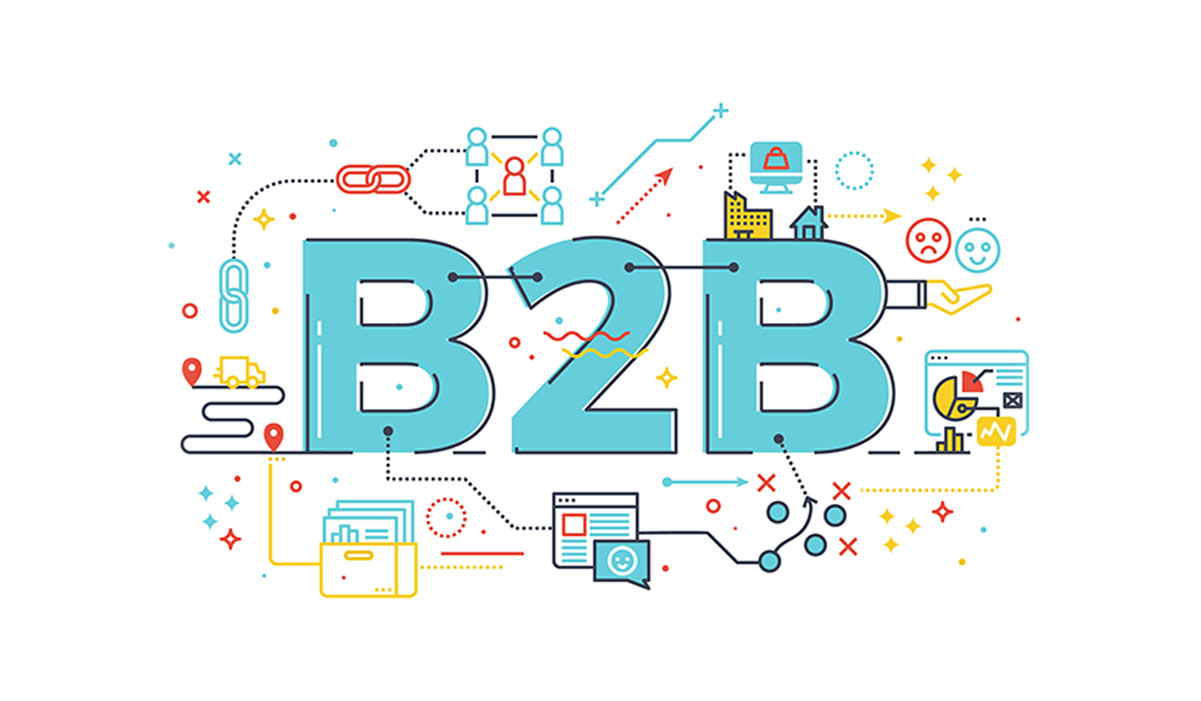In the rapidly evolving landscape of business-to-business (B2B) commerce, artificial intelligence (AI) is emerging as a game changer. Today’s businesses increasingly leverage AI tools to gain competitive edges, optimize efficiency, and drive growth. AI’s transformative capabilities include predictive analytics, automation, and personalized customer interactions.
AI’s potential to revolutionize B2B sales and marketing cannot be overstated. By harnessing data and applying machine learning, businesses can better predict trends, understand customer preferences, and personalize interactions. These advanced capabilities allow organizations to position themselves uniquely in the market, tailoring their approaches to address specific customer needs effectively. Let’s further explore this fascinating intersection of technology and business strategy, shedding light on how AI fundamentally reshapes B2B dynamics.
Key Takeaways:
- Explore how Artificial Intelligence is transforming B2B sales and marketing techniques.
- Discover practical applications and benefits of AI in the business-to-business landscape.
- Learn about challenges and solutions when integrating AI into existing strategies.
- Gain insights from recent developments in AI technology.
Table of Contents:
- Introduction to AI in B2B Sales and Marketing
- Understanding AI’s Role in Customer Insights
- Automating Sales Processes with AI
- Enhancing Marketing Strategies Through AI
- The Benefits of AI in Data Analysis
- Overcoming Challenges in AI Integration
- Real-World Examples of Successful AI Implementation
- Future Trends and Predictions
Introduction to AI in B2B Sales and Marketing
Artificial intelligence is evolving into a crucial partner in B2B sales and marketing. In highly competitive markets, companies are turning to AI for solutions that can optimize efficiency and effectiveness in order to maintain a competitive edge. By leveraging AI to analyze vast amounts of data, companies can acquire valuable information and make educated choices, ultimately leading to more strategic sales and marketing endeavors. Moreover, AI aids in reducing operational costs and increasing revenue by automating routine tasks and providing deeper insights into customer data. This transformation spans b2b sales and marketing, where AI’s integration enhances processes and strategies.
Understanding AI’s Role in Customer Insights
AI’s capability to transform raw data into actionable customer insights is unparalleled. By utilizing machine learning algorithms, businesses can predict customer behavior and track engagement patterns with remarkable accuracy. These insights enable companies to customize their offerings, enhancing customer satisfaction and loyalty. Additionally, AI-driven analytics allows for real-time adjustments in marketing strategies, ensuring flexibility and responsiveness to market changes and consumer demands.
Automating Sales Processes with AI
Through AI-driven automation, sales processes become more streamlined and efficient. Tasks that once consumed significant time, such as lead scoring and follow-up communications, are now managed by intelligent systems. Automated chatbots engage customers with relevant information, freeing human staff to focus on relationship-building and strategic tasks and enhancing overall sales efforts. AI tools have the capability to forecast sales trends, enabling companies to focus on promising leads and minimize the resources spent on manual data processing and analysis.
Enhancing Marketing Strategies Through AI
Marketing strategies are also taking a new turn with AI integration. Thanks to AI’s capabilities, target segmentation, and personalized content creation are made more precise and impactful. By applying AI technologies, businesses can tailor their marketing campaigns to specific audience segments, ensuring the right message reaches the right people at the right time. Moreover, AI can optimize marketing spend by allocating resources to the most effective channels, resulting in a higher return on investment for marketing efforts.
The Benefits of AI in Data Analysis
Data is the new oil in the business world, and AI is the tool that refines it. Advanced AI systems process enormous amounts of data at lightning speed, uncovering patterns and trends that might go unnoticed otherwise. This capability leads not only to faster decision-making but also to more informed decisions that are driven by fundamental data insights. Enhanced data accuracy and minimized human error in data interpretation pave the way for more targeted business strategies and improved outcome predictability.
Overcoming Challenges in AI Integration
Despite its potential, incorporating AI into business strategies isn’t free from challenges. Data privacy concerns, the need for substantial upfront investments, and the requirement for ongoing training are significant barriers. However, companies that address these challenges proactively and invest in their teams’ upskilling often find themselves better prepared for the future. Building a scalable AI infrastructure and ensuring robust data security measures are also critical for long-term success in AI integration.
Real-World Examples of Successful AI Implementation
An array of companies have already begun to harness AI’s power successfully. For instance, IBM has used AI to refine its Watson-based services, offering clients a more nuanced and predictive analytical capability. Such implementations demonstrate that, when correctly applied, AI can be a transformative force in business operations, as supported by industry projections. These practical uses demonstrate AI’s ability to make important enhancements in productivity, customer happiness, and competitiveness in the market.
Future Trends and Predictions
AI’s role in B2B sales and marketing seems destined to grow. Potential advancements will likely focus on even greater personalization, enhanced predictive analytics, and the increased integration of AI across business processes. Companies that embrace these changes sooner rather than later will likely emerge as leaders in their respective fields, leveraging AI to unlock unprecedented innovation and success. As AI continues to evolve, its strategic implementation will be a crucial differentiator for businesses aiming to maintain a competitive edge in the B2B sector.

